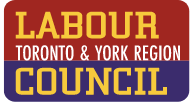Along with Equity, Sustainability, and Community Resilience in a Framework of Indigenous Rights
July 3, 2025
Many union members breathed a sigh of relief when Conservative Pierre Poilievre failed to win government in the spring 2025 federation election. Despite Poilievre’s appeal to some workers because he addressed their anger over being abandoned by the Trudeau government in an affordability crisis, most union members knew the dangers he presented. When Mark Carney became Prime Minister, heading a national Liberal government, the labour movement called on him to address affordability, unemployment, climate change, and completing the unfinished business pushed forward by the NDP such as universal Pharmacare.
Instead, Carney’s Liberals have been caving to many demands by Trump and Canada’s big business leaders. As usual, the rules of Naomi Klein’s Shock Doctrine are at work. Carney is doing things that no federal Conservative government has ever tried to do.
Carney’s “Strong Borders Act,” Bill C-2, will see Canada’s immigration and security approach nearly totally reoriented to better align with American interests.
Bill C-2 grants massive and far reaching powers to Canada’s Immigration Minister, who will gain the ability to cancel residency applications and deport entire groups without due process, mirroring Trump’s monstrous detentions and deportations in the United States. It gives sweeping powers to CSIS, CBSA, and the police. These powers will be exploited by employers to attack undocumented workers fighting wage theft or exploitation.
For the rest of us, C-2’s broad information sharing and policing powers reduce our privacy rights and will inevitably be turned on Indigenous peoples, the labour movement and others to the benefit of wealthy corporations. To add insult to injury, the Bill even gives the American government the ability to read Canadian mail.
Carney’s largest handout to the U.S. and corporations, however, is his unwavering support for increases to Canada’s military budget, first to 2% and then aiming for 5% of GDP. This increase in military funding was a central campaign plank for Donald Trump, who vowed to force all NATO member states to make the increase.
Less than 6 months into his presidency, Trump has gotten his wish. That means that, starting in 2026, Canada will spend over $150B per year on its military budget. That is on top of the $70B+ spent on American F-35 war planes, the $300B+ on 15 warships, and $71B Trump is demanding for his “Golden Dome” program. Canadian workers will soon be paying through the nose to fund American wars abroad, like the recent illegal attacks on Iran, and the U.S. funded genocide in Palestine.
Instead, Canada should spend that same money to address issues faced by working people at home. If Carney chose to invest 75% of that $150B on healthcare, education, and housing, he could:
- Construct 43 hospitals in Canada, in the first year;
- Repair each and every school in the country and build hundreds more, in the second year; and
- Build over 300,000 social housing units, in the third year.
All while still increasing the military budget significantly. That money could be used to drastically expand coverage for Employment Insurance, ensuring every worker impacted by American trade war attacks be covered for the full duration of their employment.
A program like this would not only address dire social ills facing Canadian workers, but would create over a million good jobs, many in unionized fields, like the construction sector, raising wages and improving working conditions. This would lead to economic growth and a dramatic improvement to the lives of working Canadians — all without needing to trample on international, democratic, Indigenous, climate, and workers’ rights.
To address the economy, Carney’s Liberals recently introduced and passed Bill C-5, the One Canadian Economy Act. Many working people view it with cautious optimism. The legislation’s stated goals include increasing internal trade and accelerating critical nation-building projects – objectives that could support good union jobs and generate lasting economic benefits for workers and communities across Canada.
However, as currently drafted, the legislation grants extraordinary discretionary powers to the responsible Minister and Cabinet without sufficient safeguards. These unchecked powers – including the ability to exempt national interest projects from existing regulatory protections – raise serous concerns about transparency, accountability, and the long-term integrity of Canada’s legislative framework.
The labour movement insists that any project deemed to be in the national interest must not only reflect economic goals but also advance labour rights, equity, sustainability, and community resilience. And foremost, they must guarantee a high-standards, rights-based consultative process with Indigenous peoples that include free, prior and informed consent. Otherwise, Bill C-5 appears to be similar to Doug Ford’s Bill 5 in Ontario, which reflects the interests of wealthy corporations.
Furthermore, Bill C-5 does nothing to enshrine “Buy Canadian” models to ensure domestic job creation for their projects. Against the backdrop of looming trade negotiations with the U.S., it becomes easy to imagine how American corporations would take advantage of this legislation given their hostility to environmental and Indigenous protections in their own country. Legislation like this will only make American corporation’s profiteering from Canada easier down the line.
Finally, this week, responding to one of Trump’s tweets like it was a direct order, Carney removed the Digital Service Tax — a massive hand out to American tech giants like Amazon’s Jeff Bezos.
Canadians elected this government to fix what the last one broke — instead, Carney is deepening the crisis for working people.
It is absolutely the case that we need to unify as one country to address the crises facing our Canada. But, working people must reject the false choices being presented to them by corporate backed politicians who helped create this crisis.
Instead, we need to protect and expand labour and democratic rights, improve lives for working people, and protect our environment.
The Labour Council resolves to:
- Continue supporting the “The Withdraw Bill C-2” campaign initiated by the Migrant Rights Network, Canadian Council for Refugees, and International Civil Liberties Monitoring Group
- Call on the federal government to ensure that any national interest projects reflect the principles identified above
- Urge affiliates to register their members for the Labour Council’s Fight For A Better Future Activists Assembly planned for October 4, 2025





